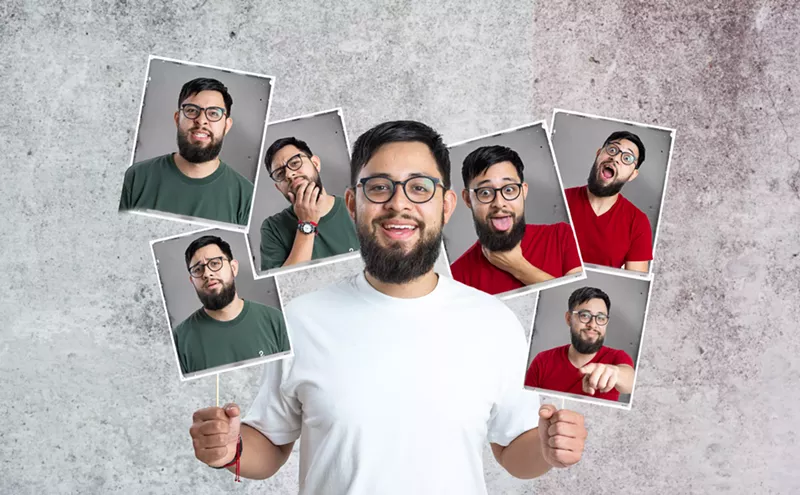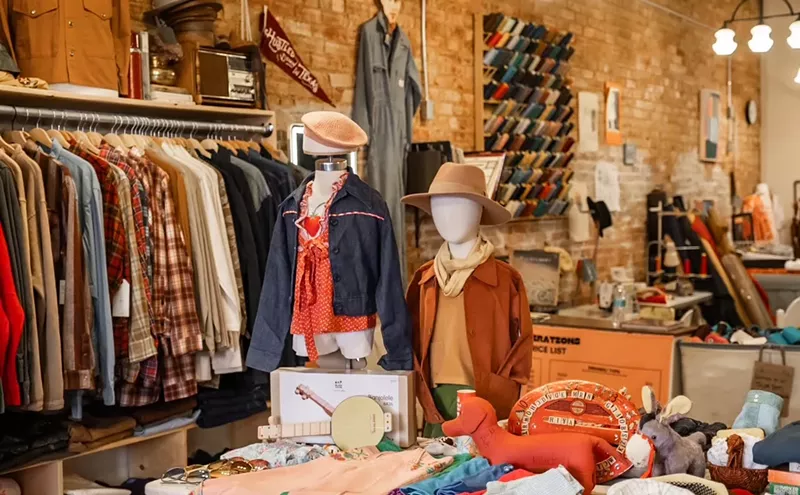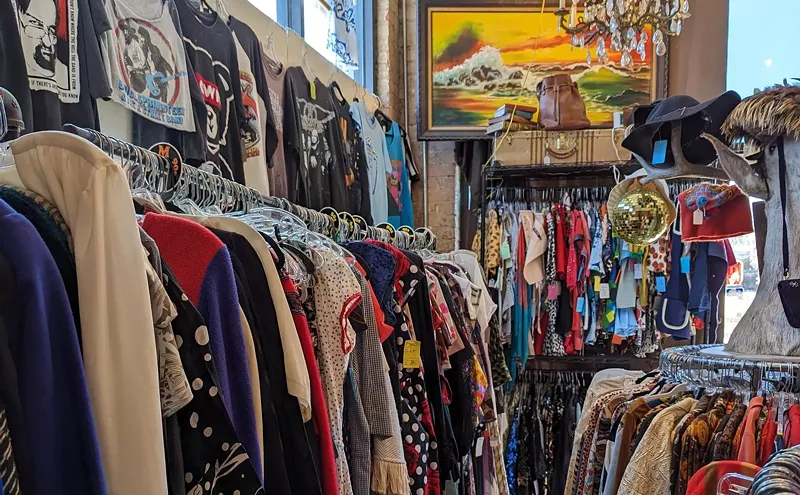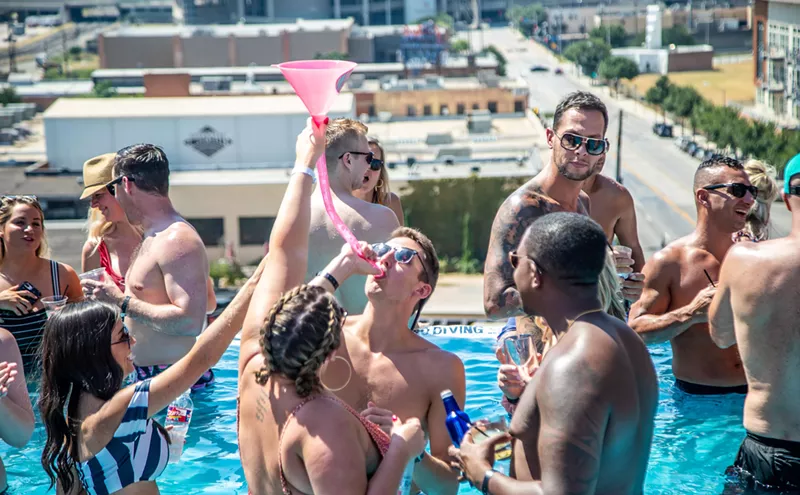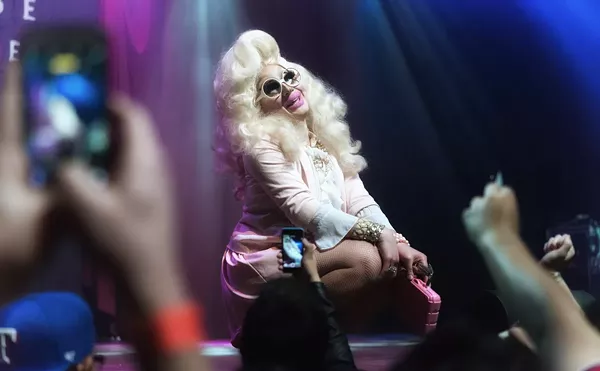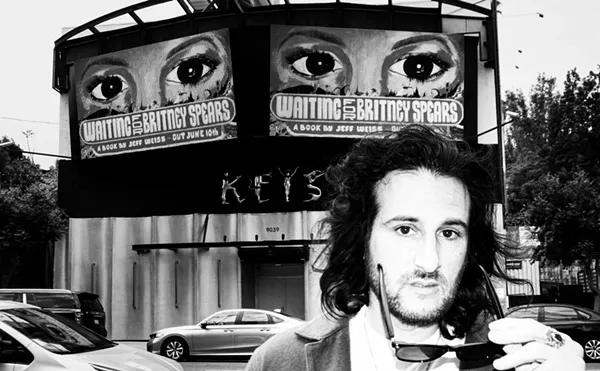Lauren Belmore is a local poet and noise musician who identifies as non-binary. They studied playwriting at the University of North Texas and now live and work in Dallas. (They pronouns are used when referring to non binary-identifying persons.) Here, they write about coming out and the non-binary artist community in Dallas.
I'm still on my mother's health insurance and I'm not even old enough to rent a car, but at 23 I’m part of a community that is both flourishing in the internet age and confronting the kind of high-profile hate that claimed 49 lives in Orlando this month. Sadly that venom is nothing new for the LBGTQA+ community, which has consistently turned to self-expression through art as a means of processing difficult experiences. The mediums I have chosen in the course of my identity quest are noise music and poetry.
I didn't come out with my emotional and physical attraction to women until I was 19. I was queer until I was 20, and I was 21 before I identified as non-binary, a term that means not identifying as any gender. I use the word queer, originally intended as a slur, out of a desire to reclaim it for myself. It is not a blanket term for the LBGTQA+ community, which stands for lesbian, bisexual, gay, trans, queer, asexual, etc.; there are plenty of people who do not wish to reclaim it.
I grew up in Spring, Texas, a suburb of Houston that’s very safe, upper middle-class and white. Throughout my adolescence, I was fairly disinterested in romance. Instead, I buried my nose in books. The idea of cultivating relationships, with all of its awkward physicality and expectations, was overwhelming because my self-image was extremely poor. I was overweight and graceless and I hated puberty with every growing bone in my body.
The friends I made were excitable boys who loved video games and hitting each other with plastic swords. The more my body developed, the less I felt I fit in. As I squirmed into a sports bra to contain my budding chest, I felt like a failure. When I excused myself from class to change my first sanitary pad in fifth grade, it was a walk to the hormonal gallows.
The first time a boy asked me if I was gay I was wearing Old Navy cargo shorts, Doc Martins and a brown button-down shirt; I dressed this way because I did not believe I was pretty or thin enough to wear girl's clothes. When I asked what he meant, he laughed in my face. The rest of the day, I looked at myself in the mirror with tears in my eyes.
In high school I saw the way lesbians were harassed. Even my parents, who were very accepting of my gay male friends, gawked at lesbians. About four or five months before I told my mother I was attracted to women, we saw two women kissing in a parking lot at the airport. “Look!” my mother pointed from moving walkway. "Look at the lesbians.” My heart sank, imagining my future self standing there with a partner, and my mother pointing from a glass window. “Stop,” I told her, in quiet frustration. “They're just people."
These fears made my coming-out process incredibly slow. I rejected the first girl I fell in love with three times because I knew she'd want to be out with me and I wasn't ready. At parties we hid in the bathroom to make out, and one time I was so drunk I chipped my tooth. At first I relied on substances to suppress the shame I felt about who I really was.
The first time I told someone I thought I “may not be straight” was in a dorm room on State Street in Chicago, where I was staying while I studied at improvisational comedy mecca The Second City and did work as a student dramaturg at University of Chicago. I was alone in a new place and had just shaved my head for the first time, also a small act of rebirth. This was my opportunity to practice being honest; first with strangers, and then with everyone back home. As the words slipped from my lips, she cheered and said, “I knew it.” I wasn't offended. Instead, it lifted a weight.
Some people have been loud and proud since they were little. Some have gone through many shifts in identify in a short time. Others are still closeted, and that's OK. It's a personal choice.
What caused me to refine my identity at 21, when I came out as non-binary, was my feeling that I am neither gender. My behaviors have never fallen mainly into either the feminine or masculine category. I now prefer to be referred to with “they” pronouns rather than "he" or "she." Getting people to use them has been interesting, to say the least. Other queer folk have no problem correcting themselves. I have noticed that CIS people (aka comfortable in skin) are confused. I often have to clarify and it can be tiring to make the same speech over and over again.
I've spent the last two years since I've been out as non-binary exploring all facets of my identity, from my appearance to my attitudes to more general aspects of my lifestyle. I frequently shave my head, and I experiment with binding my chest. When I wake up in the morning, I think, “Do I feel feminine or masculine today?” and honor whatever that feeling is.
When play-writing became stressful, I took up noise music and poetry as hobbies. The artistic community they led me to in DFW has been instrumental to my self-discovery. The Punk Poets Society, now defunct, was the first poetry collective I ever joined. It was headed by a queer friend of mine who frequently wore a full face of make-up and expressed his fondness for being choked. I was enamored with how free I felt there; free enough to perform my first poem about being non-binary. “Honey, I'm still trying to figure myself out but/you know what they say/you are what you eat," it went. I try to bring the fear, excitement and authenticity of that first performance to my performances now.
When I went through my first depression after coming out, noise music gave me a way to express feelings that I didn't have words for. Instead I created anxiety-ridden sound collages, formed bands and toured Texas with other queer-identifying friends. I sought out LBGTQA+ artist companionship with fervor. My final year in Denton, I helped turn the well-known queer house, Gay Cat Hell, into a noise and experimental art venue.
At Gay Cat Hell weirdness was encouraged, the only mandate being to maintain the venue as a “Safe(r) Space.” This meant no homophobia, sexism, racism, ableism or transphobia; basically anything that could make a visitor feel unwelcome. In the course of my time there, I saw countless people begin to experiment and collaborate across all media of art. Over 100 people showed up for our first show in December 2015. The bands, artwork and installations all comprised or were made by women and non-binary identifying artists.
In Dallas, I spend time with other LBGTQA+ artists in bars or spaces made for us. Places like Black Lodge in Deep Ellum or the Home Dome, a house venue in Oak Cliff, are made specifically for us. Within our community we still have much to learn and check about our privilege. Queer-identifying wordsmiths of color remind us who are white that there are even rougher things we will never experience, and ultimately it's through this joining together of marginalized voices that we're able to lift each other up.
Experiences of unrequited romance, lost love, expression of true self, societal fear, self-sabotage, isolation and joyous reveal all drive the art I produce. There is something attractive about the time constraints of poetry and music, about having a certain amount of time to say what you want to say and then being under no obligation to discuss it afterward.
The fact that I can express my love of the genderqueer world and reveal my self-doubt in a 6-minute span, and not have to re-analyze it, is everything I dreamed of when I was trapped in the emotional turmoil of adolescence. In a collection of poems or segment of sound-collaging, the overwhelming potential and confusion of being alive come together in just the right way for a moment. The undulating pulsations of wave-lengths at low frequencies reflect my constant anxiety and eventually inspire me to scream out in catharsis. In that time, I am not silent; years of re-making and remodeling my queer existence are given a voice, and it demands to be heard.

Audio By Carbonatix
[
{
"name": "GPT - Billboard - Slot Inline - Content - Labeled - No Desktop",
"component": "21721571",
"insertPoint": "2",
"requiredCountToDisplay": "2"
},{
"name": "STN Player - Float - Mobile Only ",
"component": "21861991",
"insertPoint": "2",
"requiredCountToDisplay": "2"
},{
"name": "Editor Picks",
"component": "17105533",
"insertPoint": "4",
"requiredCountToDisplay": "1"
},{
"name": "Inline Links",
"component": "18349797",
"insertPoint": "8th",
"startingPoint": 8,
"requiredCountToDisplay": "7",
"maxInsertions": 25
},{
"name": "GPT - 2x Rectangles Desktop, Tower on Mobile - Labeled",
"component": "22608066",
"insertPoint": "8th",
"startingPoint": 8,
"requiredCountToDisplay": "7",
"maxInsertions": 25
},{
"name": "Inline Links",
"component": "18349797",
"insertPoint": "8th",
"startingPoint": 12,
"requiredCountToDisplay": "11",
"maxInsertions": 25
},{
"name": "GPT - Leaderboard to Tower - Slot Auto-select - Labeled",
"component": "17357520",
"insertPoint": "8th",
"startingPoint": 12,
"requiredCountToDisplay": "11",
"maxInsertions": 25
}
]

